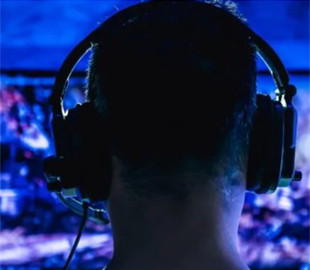
In-game purchases have long been the norm for many popular multiplayer projects. But one specific group of players has turned out to be extremely prone to the habit of spending money on them, and scientists have found out what drives them.
In a recent study, scientists examined how attitudes toward competition influence impulse purchases in games, and found that the key motivator is the need for popularity, not just competition. Behind all this is one key trait that some of us have, or rather, do not have, writes PsyPost.
The study, conducted by scientists led by Hakan Cengiz, a professor of marketing at Karabük University and published in the journal Computers in Human Behavior, found that gamers with low levels of social competence are particularly prone to impulse purchases driven by a desire for social recognition. These findings contribute to a growing body of research examining the psychological mechanisms underlying digital behavior and offer valuable insights for game developers and marketers.
The gaming industry has seen a sharp increase in revenue from in-game purchases, prompting researchers to study the factors that drive impulsive spending. While previous studies have examined emotional triggers, game mechanics, and player engagement, this study shifts the focus to personality traits such as competitiveness, social competence, and desire for popularity.
“I've been studying maladaptive consumer behavior for many years,” Cengiz explains, “people often make impulsive or irrational purchases when they're feeling particularly strong positive or negative emotions, and this behavior can lead to adverse consequences for them.” His interest in the intersection of games, competition, and social approval led him to study how these elements interact to influence spending habits.
The study involved 234 people recruited from gaming platforms Discord and Twitch, known for their active communities and competitive environments. Eligible participants had played games on Steam for at least three months and had previously made in-game purchases. The survey assessed a variety of factors, including social competence, need for popularity, competitive attitudes, and impulse buying tendencies.
Social competence was assessed using statements such as “I am good at making friends,” while need for popularity was measured using questions such as “I have done things to become more popular, even if it meant doing something I normally wouldn’t do.” The results showed that competitive attitudes alone did not lead to impulsive in-game purchases. On the contrary, competition increased the need for popularity, which in turn significantly predicted impulsive purchasing behavior.
Players who sought social recognition were more likely to make spontaneous purchases, likely seeking status within their gaming communities. “The main surprise was that purely competitive feelings did not become an independent incentive for in-game impulse purchases, although we initially assumed that they might be,” Cengiz noted, “and it turned out that the need for popularity plays a key role in transforming competitive drive into impulse purchase.”
This suggests that in-game purchases serve both functional and social purposes, allowing players to enhance their in-game image and social standing in their environment.
Another key finding of the study was the moderating effect of social competence. Players with lower social skills were more likely to make impulsive purchases motivated by a need for popularity, while players with higher social competence were less likely to succumb to such pressure. This suggests that people who experience difficulties with social interaction in real life may seek validation in virtual purchases, while people with strong social skills are less likely to rely on this form of self-actualization.
Despite its valuable findings, the study has some limitations. The sample consisted of Discord and Twitch users, which may not be representative of the broader gaming population. In addition, the study focused solely on in-game item purchases, without considering other behaviors such as game subscriptions or premium statuses. Future research can expand on these aspects to provide a more complete understanding of in-game spending.
In-game purchases are projected to generate over $200 billion in revenue by 2025, indicating the growing financial importance of this sector. Understanding the psychological factors underlying such purchases can help game developers create ethical monetization strategies and ensure that players engage responsibly in such spending.

